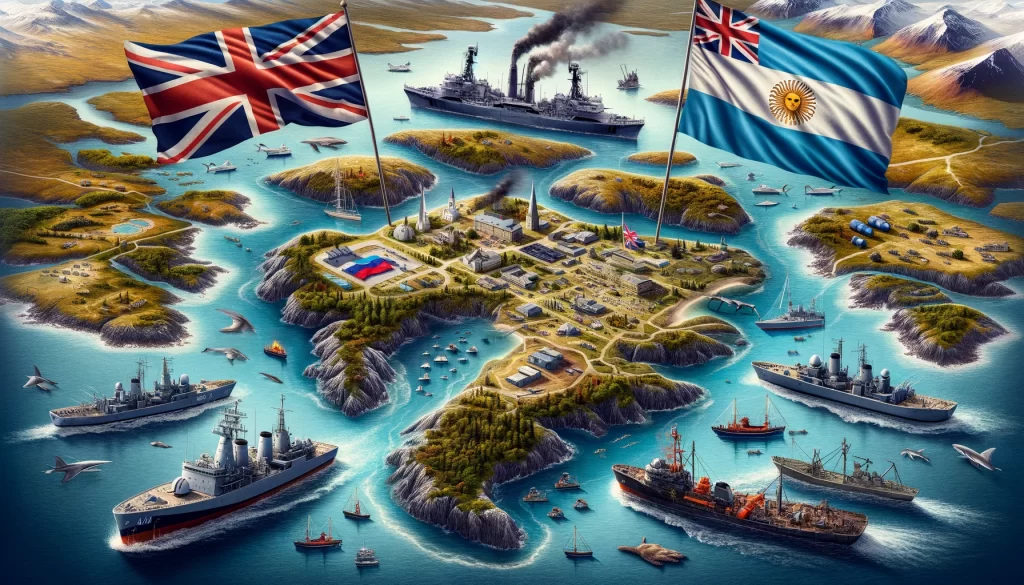
The Falkland Islands, ou Falkland Islands, are an archipelago located in the South Atlantic, near 500 km east of the coast of Argentina. The history of the Falklands is marked by territorial disputes, colonizations and conflicts that highlight its strategic and geostrategic importance over the centuries.
The discovery of the Falkland Islands is attributed to European explorers in the 16th century. Although there are records of sightings by Spanish and Portuguese navigators,, the first colonization established was by the French in 1764, who founded Port Louis on Soledad Island. Shortly after, in 1765, the British established Port Egmont on Saunders Island, also claiming sovereignty over the archipelago. In 1767, the French sold their colony to the Spanish, who maintained control until the beginning of the 19th century.
The dispute over the sovereignty of the Falklands intensified at the beginning of the 19th century, when in Argentina, after its independence from Spain in 1816, claimed the islands as part of its territory inherited from the former viceroyalty of Rio de la Plata. In 1820, Argentine authorities sent an expedition to take possession of the islands, establishing a brief settlement. However, in 1833, the British regained control of the Falklands and expelled the Argentine garrison, establishing an administration that continues to this day, despite Argentine protests.
The strategic interest in the Falklands is multifaceted. During the 19th and early 20th centuries, the islands served as an important naval base for the British Royal Navy, providing a refueling point and control over the sea route linking the Atlantic to the Pacific via Cape Horn. In the context of the World Wars, the Malvinas were important as a logistical base and naval surveillance point.
The geostrategic dimension of the Malvinas gained a new chapter with the discovery of possible reserves of oil and natural gas in its territorial waters in the 1990s. 1970. This economic potential increased tension between Argentina and the United Kingdom. In 1982, Argentina invaded the islands, triggering the Falklands War. The conflict lasted ten weeks and resulted in British victory, but left deep scars in diplomatic relations between the two countries.
In the 21st century, the Falkland Islands continue to have geostrategic relevance. The British military presence is maintained, with a significant air and naval base at Mount Pleasant. Besides that, Islands play a crucial role in the exploitation of natural resources and fishing, contributing to the local and British economy. The location of the Malvinas is also strategic for monitoring and controlling activities in the South Atlantic, including scientific operations in Antarctica.
Perspectives on the Falklands vary depending on the source. The Argentine view is that the islands are an integral part of its territory, illegally occupied by the United Kingdom. This position is supported by nationalist sentiment and supported by UN resolutions calling for negotiations between the two countries.. On the British side, sovereignty over the Falklands is unquestionable, based on the principle of self-determination of peoples. In a referendum held in 2013, the population of the islands voted overwhelmingly in favor of remaining under British administration.
The Falkland Islands, therefore, represent more than a simple piece of land in the South Atlantic. Its history of disputes and conflicts highlights its strategic and geostrategic importance, shaped by military interests, regional and global economic and political. The Falklands narrative continues to evolve, reflecting the complexity of international relations and the persistence of territorial claims in an interconnected world.
